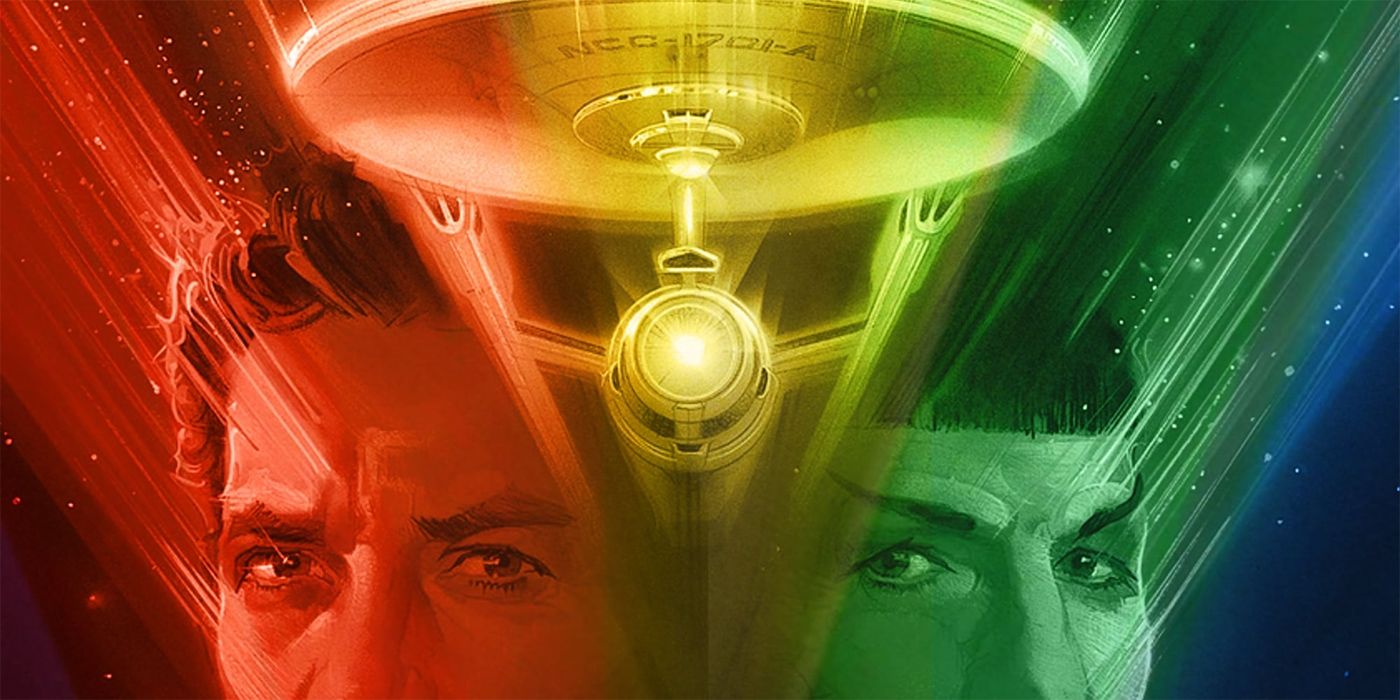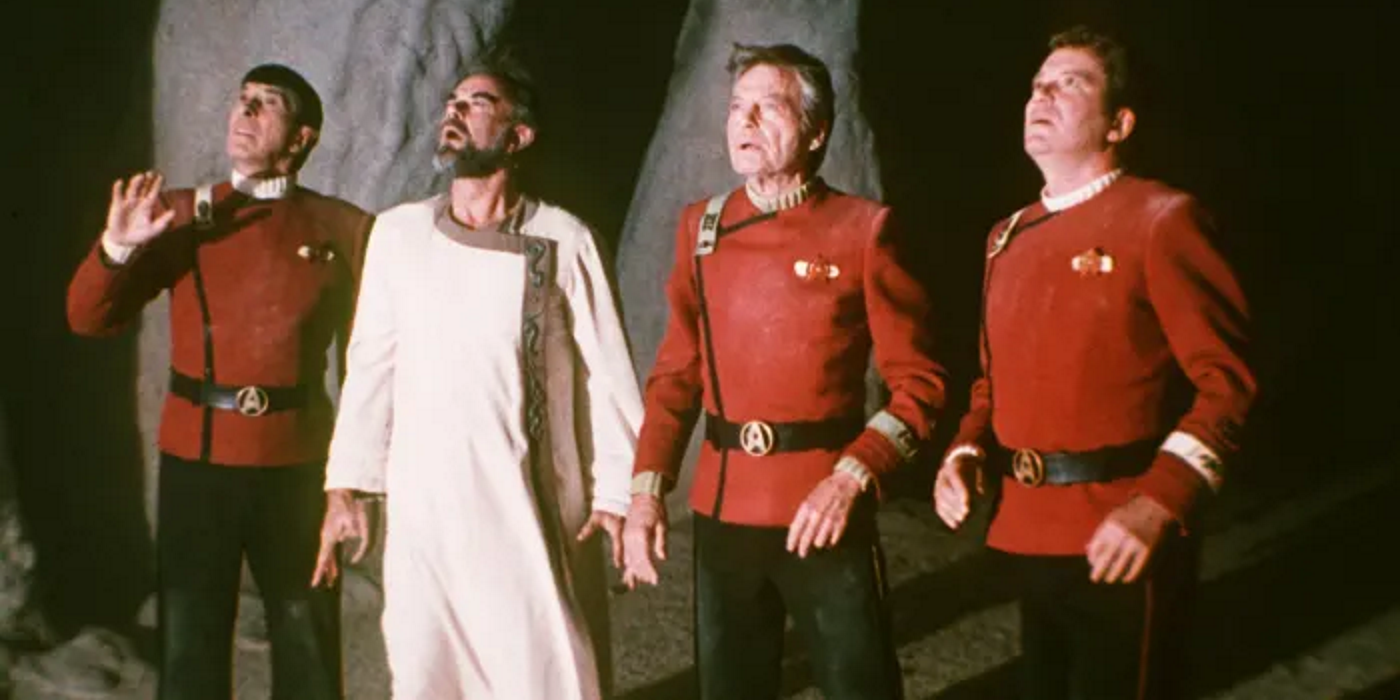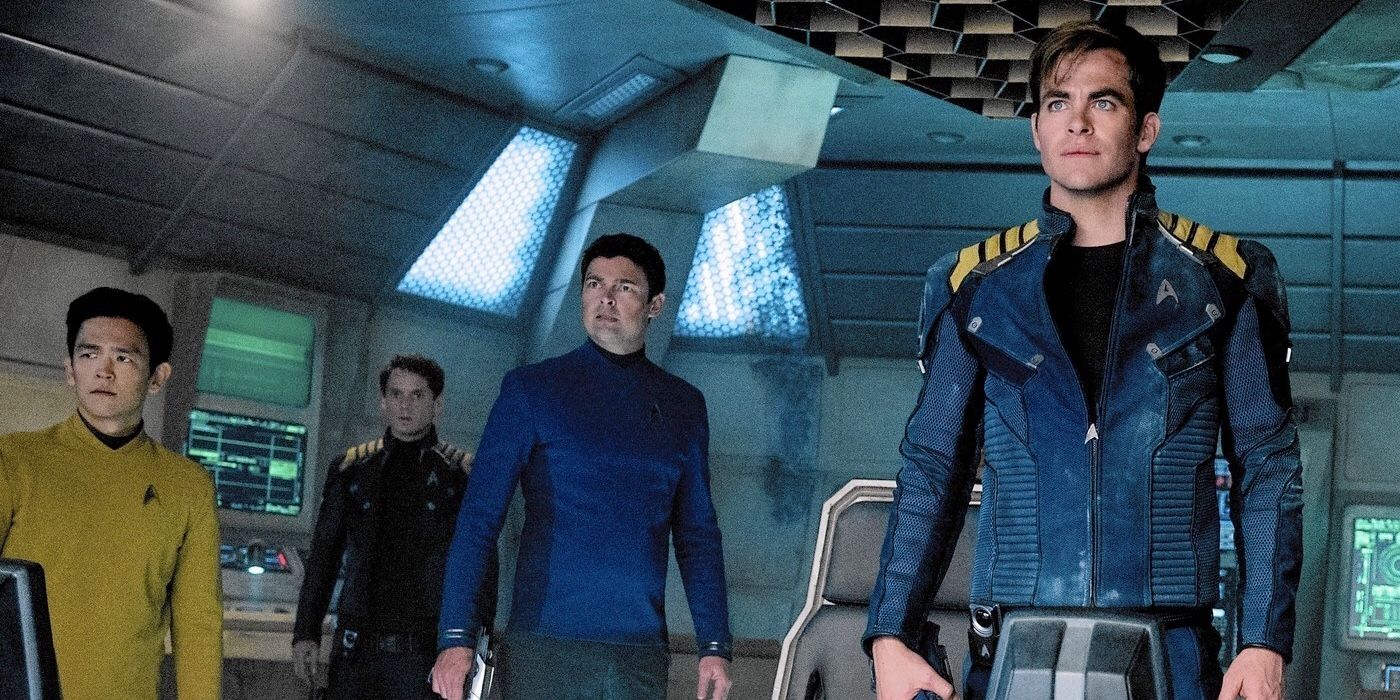With a new Star Trek film reportedly in development by Paramount, one stance held by the fans about the science fiction franchise's foray into feature films that has been maintained for decades is that odd-numbered movies in the film series consistently are the weaker entries, in comparison to their even-numbered counterparts. Some fans have referred to this as a de facto curse for the film series and one that developed while The Next Generation films were being produced; the British comedy television series Spaced -- co-created by future Star Trek actor and screenwriter Simon Pegg -- would go as far as to call out this stance directly.
To be clear, some of the absolute weakest entries in the film series absolutely are odd-numbered entries, if not the absolute worst. 1989's Star Trek V: The Final Frontier is generally regarded as one of the worst films in the series and nearly killed the franchise's cinematic ambitions for good with its disastrous critical and commercial reception; it remains the lowest-rated film in the franchise on Rotten Tomatoes with a professional critics' score of 21 percent. 1998's Star Trek: Insurrection, the ninth entry in the film series, similarly was poorly received but fared better critically than 1994's Star Trek Generations, the seventh entry, and performed nearly as well commercially.
However, the question remains if 1979's inaugural installment, Star Trek: The Motion Picture, and 1984's Star Trek III: The Search for Spock deserve to be grouped with their weaker counterparts and give further credence to the odd-numbered curse. While The Motion Picture is certainly a slower, more languidly paced movie in the franchise -- boasting a 41 percent critics' score -- it is also perhaps the most visually impressive entry in the franchise. And maintaining its impressive box office totals at $139 million on a production budget of $45 million, The Motion Picture is responsible for the franchise finding its second life on the big screen in the first place.
The Search for Spock is visibly weaker than its immediate predecessor, 1982's Star Trek II: The Wrath of Khan, and its immediate sequel, 1984's Star Trek IV: The Voyage Home but not necessarily a bad movie in its own right. The Search for Spock's critical reception is relatively on par with its even-numbered counterparts -- and higher than all but one of The Next Generation films -- and only earned less than $10 million than The Wrath of Khan. And then there's the matter of The Next Generation films and films set in the divergent Kelvin Timeline springing from the 2009 reboot.
While 1996's Star Trek: First Contact is far and away the most successful film in the franchise to star The Next Generation cast -- boasting a 92 percent critics' score and $150 million in worldwide box office earnings on a production budget of $46 million -- this even-number distinction does not extend to the tenth entry in series: 2002's Star Trek: Nemesis. The fourth and final entry to star The Next Generation cast, Nemesis has the second-lowest critics' score in the franchise at 38 percent and the lowest box office totals for the franchise to date, at $67.3 million, ending The Next Generation's theatrical run on a whimper.
The 2009 reboot seemingly broke the odd-number curse, as the eleventh film in the franchise, with the second-highest box office totals in the entire franchise and the highest level of critical acclaim with a critics' score at 94 percent. And while 2013's Star Trek Into Darkness surpassed its predecessor's box office totals and maintains an impressive critics' score, fans were divided on the twelfth film in the franchise itself, including its contrived retread of The Wrath of Khan and decision to cast Benedict Cumberbatch as the villainous Khan Noonien Singh. That said, it was an odd-numbered entry that has seemingly closed out the Kelvin Timeline, with 2016's thirteenth film Star Trek Beyond ending the run despite being a box office and critical success.
Star Trek's odd-numbered reputation certainly coincides with some of the generally agreed upon weaker installments of the franchise, but it's by no means a hard rule that extends to every installment in the film series. There are certainly less than favorably received even-numbered entries in the franchise -- with Nemesis being the most apparent and one that nearly doomed the franchise's cinematic ambitions -- and multiple odd-number entries that could be defended as not deserving of the maligned association. Should the planned Star Trek film come to fruition, it will be the fourteenth cinematic installment in the franchise, free of the supposed odd-numbered curse but with a high level of expectation all its own.



